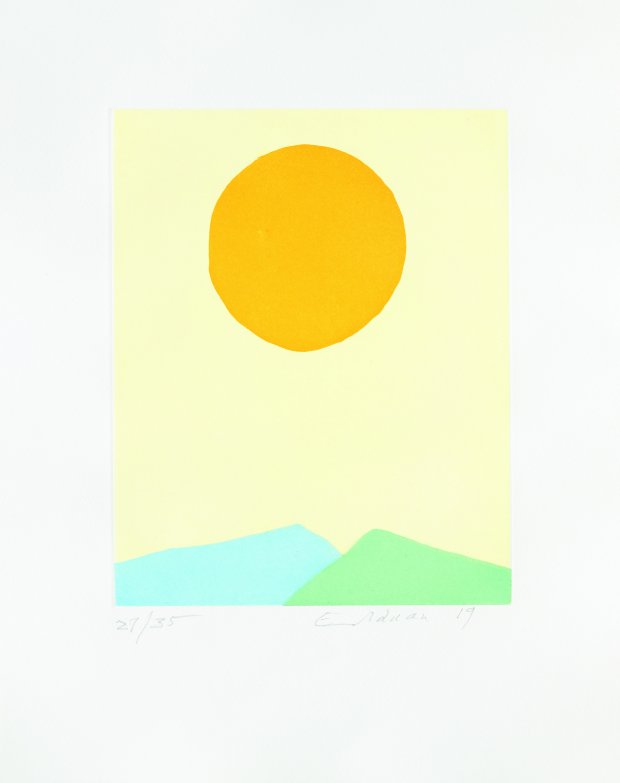This week marks the last opportunity to catch Impossible Homecoming, a show of the work by the artist and writer Etel Adnan at the Pera Museum. Adnan’s work, shown here for the first time at a major institution in Istanbul, are abstract landscapes that confront memory through the powerful use of colour.
Adnan is a unique individual whose work spans many categories. Known for her poetry, most famously The Arab Apocalypse, her star rose in the art world somewhat late in life, with retrospectives at the Serpentine and MASS MoCA in particular bringing her to a wider audience. That this show brings her work to Istanbul is striking not least because of the way in which it highlights aspects of Adnan's heritage.Born in 1925 in Beirut to a Smyrian/Izmirli Greek mother and a Damascene Ottoman officer, she grew up in a pocket of the multi-cultural, multi-lingual and multi-ethnic Middle East that the Ottoman Empire left behind.
Adnan’s long life has taken her to the West Coast of America and then to Paris, where she lives today with her partner Simone Fattal, co-curator with Serhan Ada of this exhibition. Over the decades she has mastered many mediums – of which this exhibition is a impressive showcase. Carpets, oil paintings, ceramics and drawings... Adnan’s visual work is remarkable in its breadth. Yet tying the show together is the recurrent motif of the sun, a glowing orb of varying colours hanging over mountains and sea. The exhibition progresses through her works, culminating in a documentary about the artist and recordings of her discussing her early life and her ancestral connections to Turkey.
In their abstraction these works clearly speak not to any particular landscape, yet draw from all: is this the Mediterranean or the Pacific we might wonder? Yet it is this very abstraction that makes the work so powerful, so eternal, so universal. On its opening in April – at the height of the Covid-19 pandemic – the exhibition felt powerfully expansive, facing the visitor with dramatic, emotionally charged visions of the world. However, viewing the show again before its closure, the canvases seem to carry a different meaning. It feels impossible not to think of the images we are seeing of the Mediterranean and Aegean coasts in our news feeds – the greens and blues of the turquoise coast transformed into dark reds, oranges and blacks. Somehow Adnan’s work transforms to its context, forcing us to confront a new set of impossible homecomings that we face in our changing world, the ongoing ravages of climate change, the devastating wildfires consuming landscapes so evocative of the canvases Adnan paints.




_The_Golden_Horn_at_Dusk_c._1900_140_92_80.jpg)


